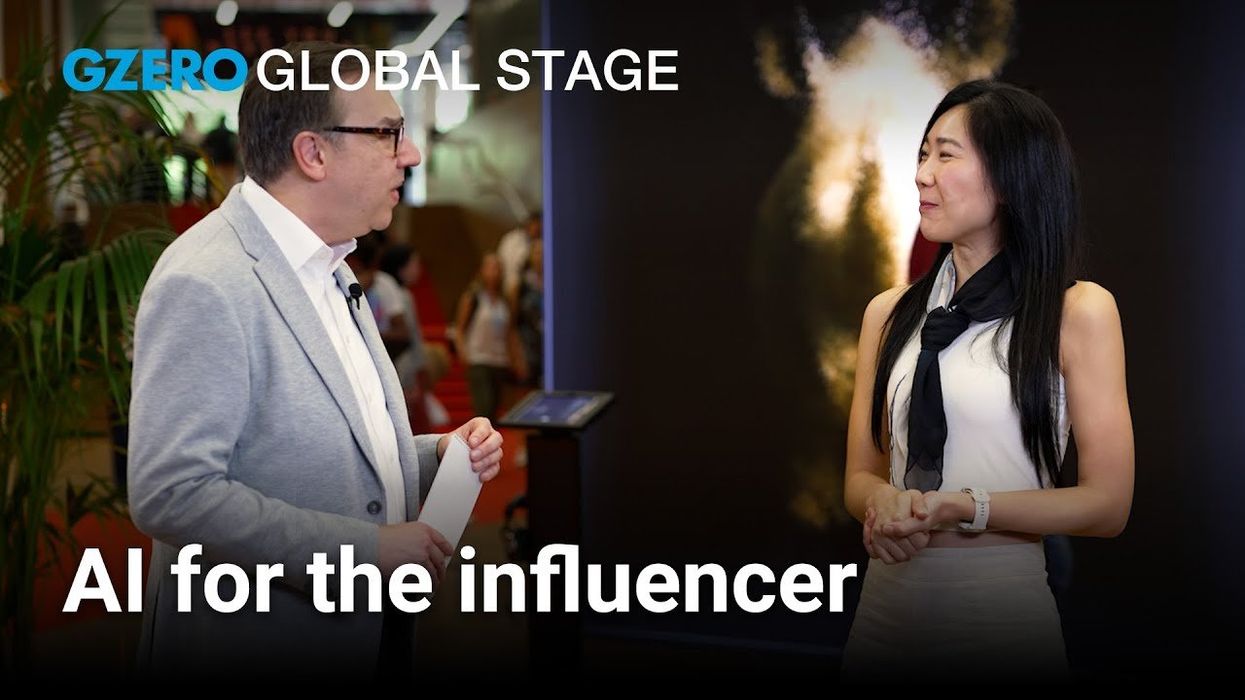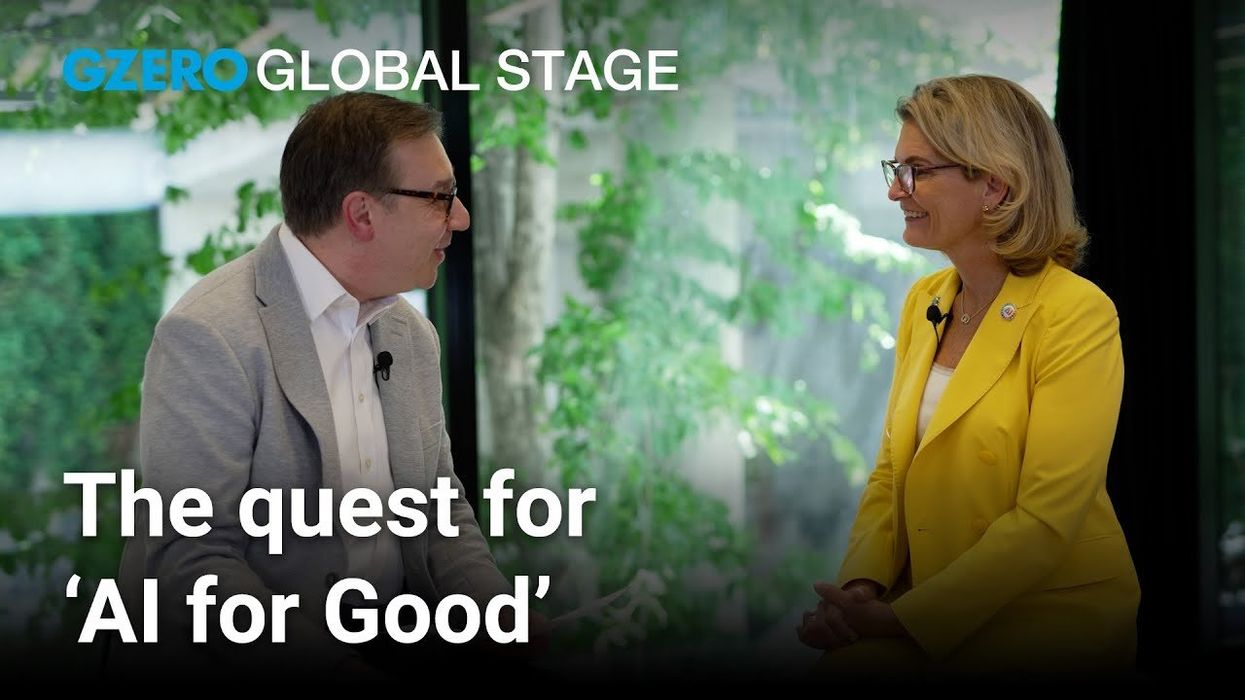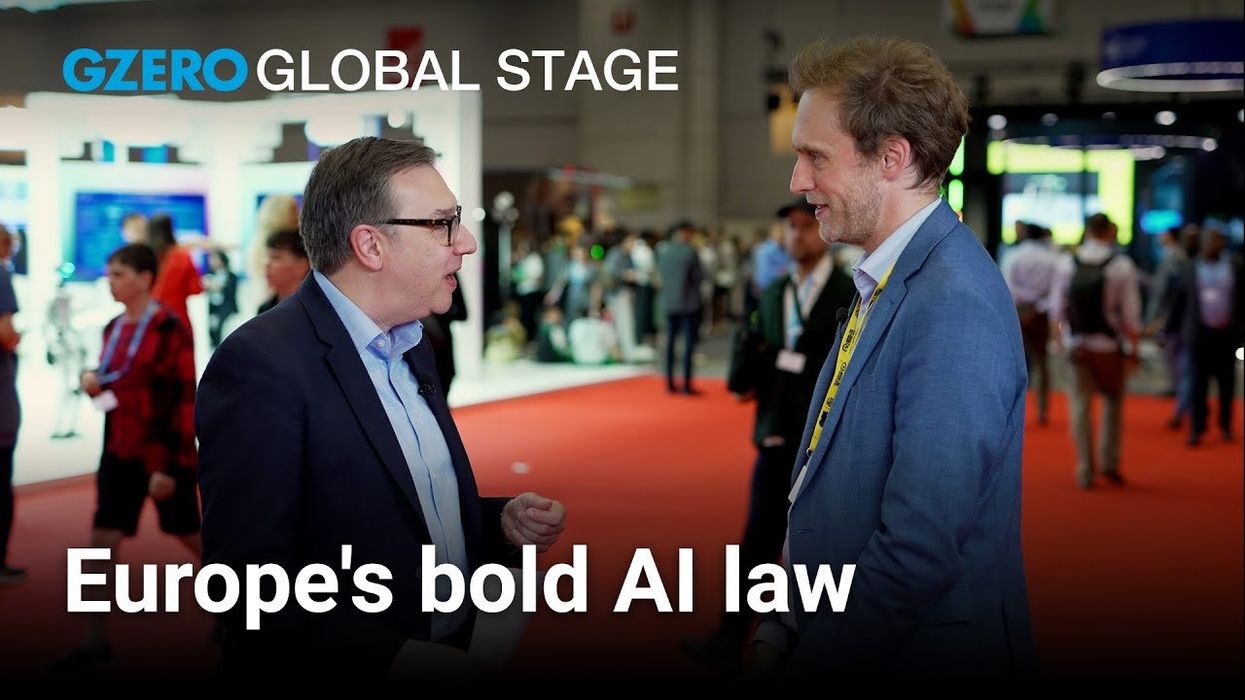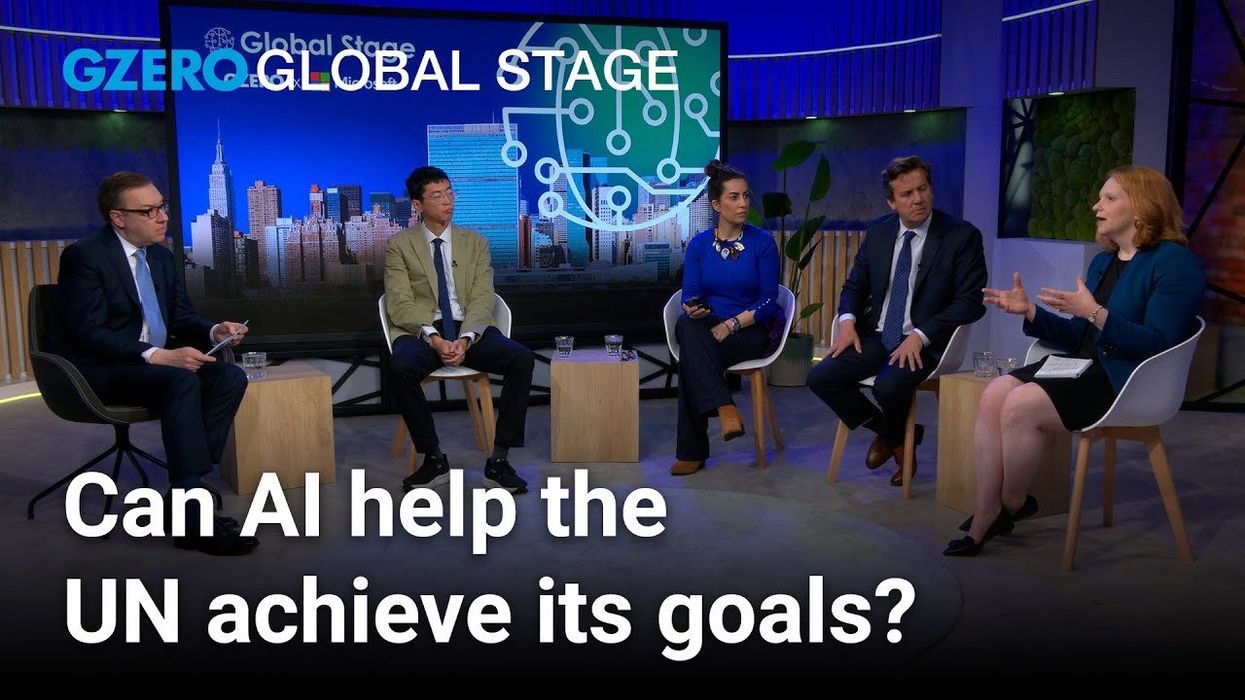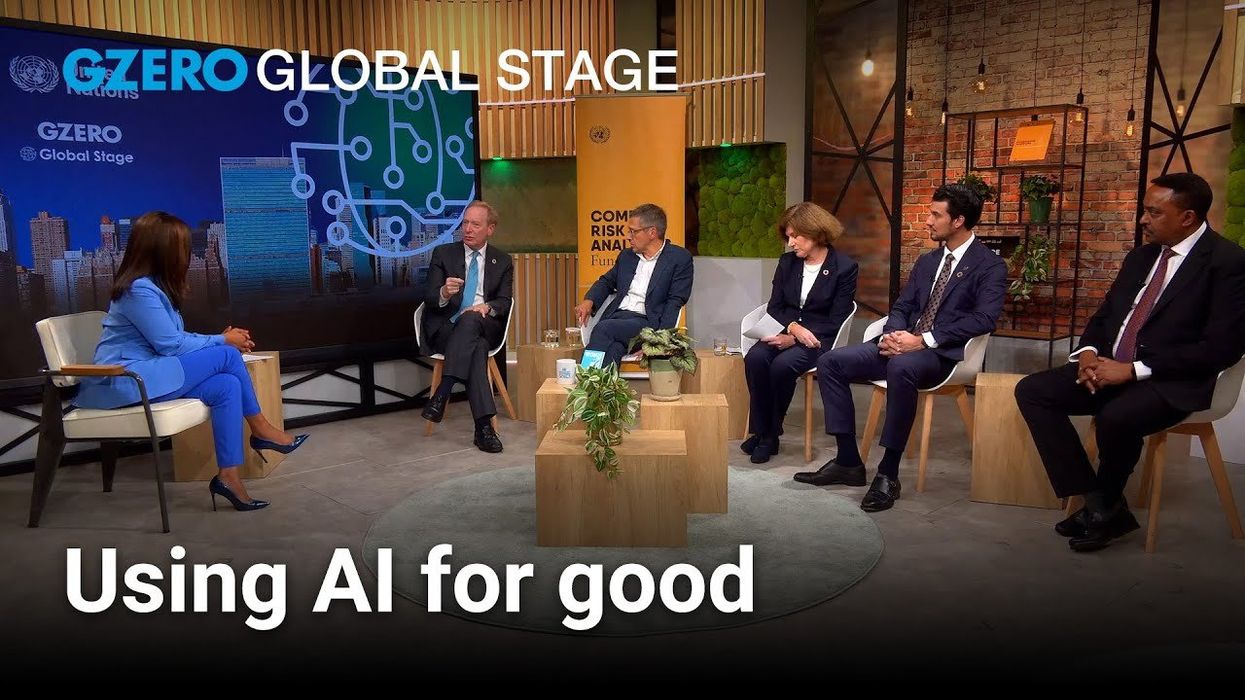AI For Good Summit
AI for the entrepreneur
At the 2025 AI for Good Summit in Geneva, GZERO’s Tony Maciulis sat down with AI educator and content creator Natalie Choprasert, whose mission is to make artificial intelligence more accessible to everyday business owners.
Jul 16, 2025
